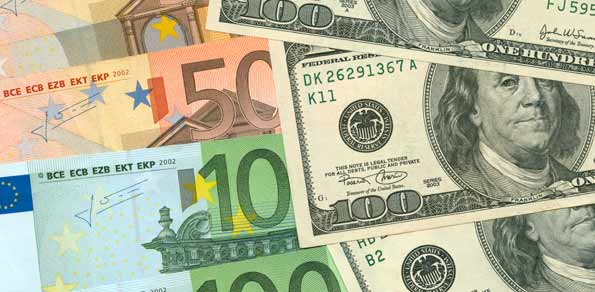The European Commission President Jose Manuel Barroso has a plan and it’s backed by a string of high profile figures as a ‘rescue plan’ for the debt crisis Euroland and moreover the major European banks face. The plan is to issue “eurobonds” as a crude method to ‘mop up’ all the pain and share the burden throughout all the seventeen member states of the Eurozone.
The Italian finance minister has named it the “master solution” to the eurozone’s debt crisis. Major figures in the world of finance, including the billionaire investor and currency speculator George Soros, have given Eurobonds their blessing and backing. So what’s the catch and why the fervent opposition from certain quarters? Why has Germany repeatedly voiced unwavering opposition to the whole notion of Eurobonds?
The Eurobond solution is beautiful in its simplicity. Certain European governments are finding it increasingly expensive to borrow from the money markets. As their economies stagnate, and they suffer under heavy debt loads and borrowing needs, the cost of borrowing has become extortionate. Greece is borrowing two year bonds at rates of 25% whilst Germany has been able to borrow at its cheapest interest rates for sixty years. Undoubtedly this reflects the fiscal prudence of Germany, however, the structural problems within the euro have put southern Europeans at a disadvantage. The eurobond solution is for all seventeen eurozone governments to jointly guarantee each others’ debts, in the form of common bonds. In doing so all governments could borrow on the same basis and at the same cost.
The biggest boost for the Eurobond plan has not come from the member states but from Chinese officials who appear to have finally nailed their colours to the mast. China is apparently willing to buy eurobonds from countries involved in the sovereign debt crisis. Zhang Xiaoqiang, vice chairman of the nation’s top economic planning agency, offered his support at the World Economic Forum in Dalian in tandem with supportive comments from Premier Wen Jiabao earlier in the week at the same event.
There is more than a hint of suspicion that the root cause of Germany’s objections appear to be domestic politics. German leaders are no doubt mindful of their country’s zero GDP growth figures in recent weeks and fully realise that a Euro collapse could not be “orderly” it would be chaotic, particularly for Germany. Figures of a twenty five percent reduction of trade and GDP have been aired by many market commentators. Despite the tub thumping xenophobic rhetoric published in the mass media German newspapers the alternative to a bond rescue does not exist, there doesn’t appear to be a plan B. Therefore plan A needs to be sold to the sceptical German populous.
Perhaps concentrating their collective minds on the recent growth in unemployment and reminding the German nation that if certain European partners go down they take Germany with them will be sufficient. The emotional rhetoric of; Italy, Spain, Greece, Portugal, Ireland, (the collective PIIGS) wanting a ‘free ride’ on the back of Germany’s brilliant fiscal management and powerhouse economic structure needs debunking and it’s incumbent on Chancellor Merkel to begin that dialogue and narrative as soon as possible. With that in mind both Ms Merkel and France’s President Sarkozy appear to have been unified this morning in their commitment and conviction that Greece will not not leave the Euro.
The Swiss central bank have kept their base rate at zero. SNB policy makers cut borrowing costs from 0.25 percent last month whilst boosting liquidity to money markets to help weaken the franc. The Swiss central bank last introduced a ‘currency cap’ in 1978 to stem gains versus the Deutsche mark. Whilst not termed a “cap” the central bank’s recent protestations, that it would go to any lengths to keep the franc pegged to circa 1.20 versus the Euro, amounts to the same. Perhaps in anticipation of this zero base rate hold the Euro has made gains versus the franc over the past two trading sessions.
Asian markets made (mostly) positive gains in overnight/early morning trade, the Nikkei closed up 1.76% and the Hang Seng closed up 0.71%. the CSI closed down 0.15%. European indices have made significant gains in morning trade, the STOXX has advanced 2.12%, the CAC 2.01%, the DAX 2.13%. the ftse is up 1.68%. Brent crude is up $150 a barrel, gold is down circa $5 an ounce. The SPX daily future is suggesting an opening of circa 0.5% up. Currency markets have been relatively flat, the Aussie dollar being the notable exception with modest falls overnight and early morning. Turning to USA markets there is a raft of data to be published this afternoon which could affect sentiment.
13:30 US – CPI Aug
13:30 US – Current Account 2Q
13:30 US – Empire State Manufacturing Index Sept
13:30 US – Initial and Continuing Jobless Claims
14:15 US – Industrial Production Aug
14:15 US – Capacity Utilisation Aug
15:00 US – Philly Fed Sept

The initial and continuing job claim numbers will be of keen interest. A Bloomberg survey has forecast an Initial Jobless Claims figure of 411K, this compares with the previous figure of 414K. A similar survey predicts 3710K for continuing claims, compared with the previous figure of 3717K.
The Philly Fed is considered an early ‘heads up’ as to what other data releases may reveal, the survey has been carried out since 1968 and is composed of a number of questions such as employment, working hours, orders, inventories and prices. A Bloomberg survey of economists gave a median forecast of -15. Last month the index came in at -30.7.





